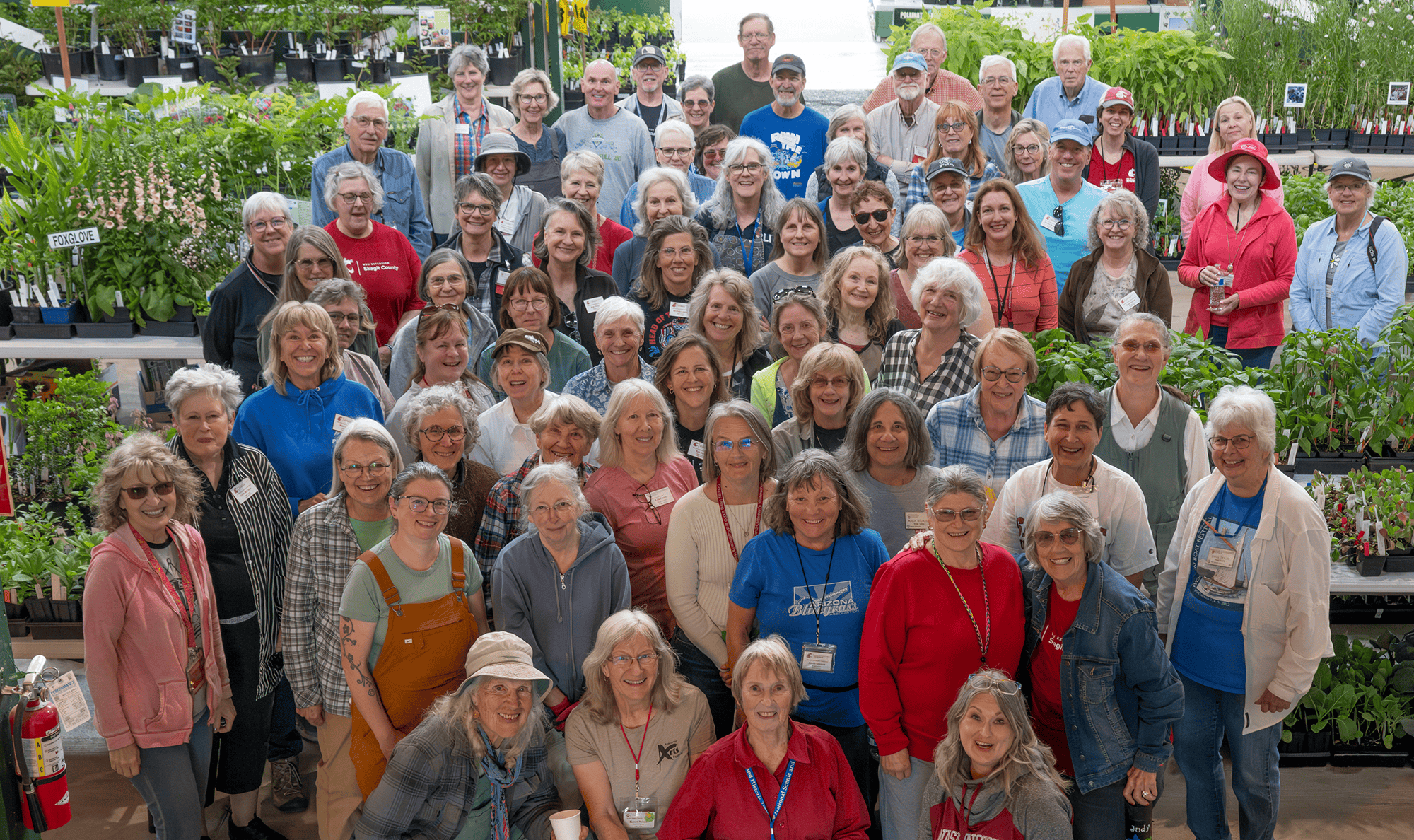
2025 Plant Fair Team © Crowell Photography
Why I became a certified Skagit County WSU Extension Master Gardener
It all starts with a passion for the garden.
By Kari Ranten, Skagit County WSU Extension Master Gardener

Kari Ranten
I am a newly certified Skagit County WSU Extension Master Gardener and a proud member of the class of 2024. The past 18 months have been a wonderful experience filled with learning, sharing my love of gardening with the community, meeting and working alongside a welcoming team of fellow gardeners, volunteering my time in a great program focused on valued priorities, and gaining insights and inspiration.
Fellow gardening enthusiasts need to take a hard look at the options offered through WSU’s new Washington Green School. Two tracks are now offered: becoming a Certified WSU Extension Master Gardener or earning a Washington Gardener Certificate for home or professional advancement. Becoming a certified master gardener expands my knowledge while fulfilling a commitment to community engagement, outreach, and volunteerism.
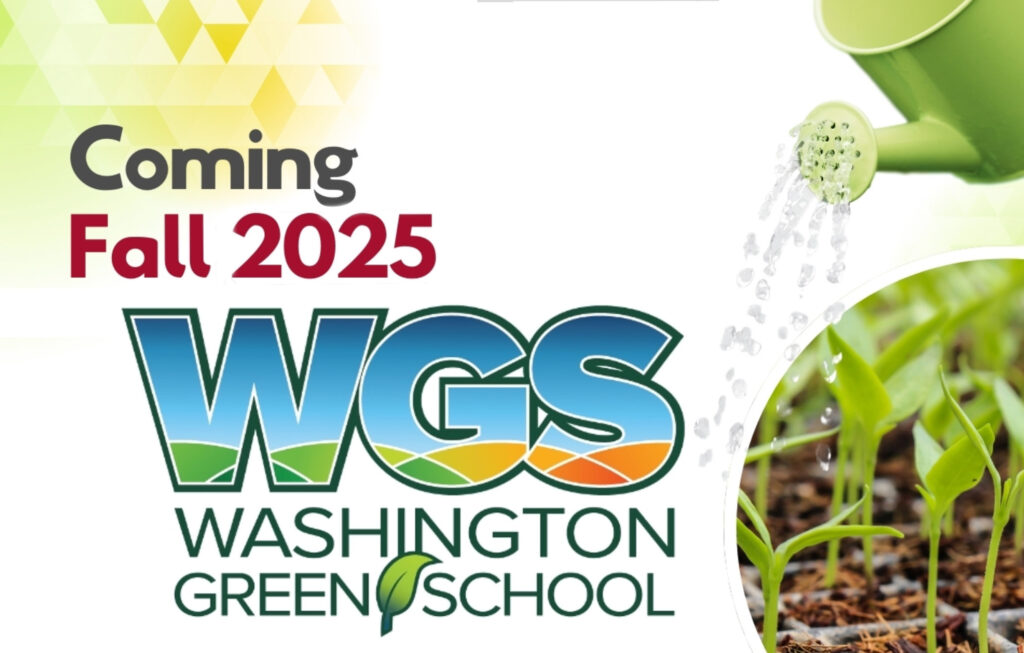 Interested in Becoming a Master Gardener?
Interested in Becoming a Master Gardener?
WSU is introducing a new program called Washington Green School which will include WSU Extension Master Gardener training. Beginning this fall, Green School will offer two distinct tracks in its online course: one for individuals looking to enhance their gardening skills through research-based horticultural and environmental stewardship, the Washington Gardener course, and another for those who wish to take it further by becoming a WSU Extension Master Gardener Program volunteer.
Jump over to a full description and links at: skagitmg.org/home/green-school/
While there are countless reasons to become a master gardener, or “garden geek” as the 2024 classmates say, here the focus is on the top 10 reasons why I chose to become a certified master gardener and volunteer in my community:
1. Loving plants and gardening.
It all starts with a passion for the garden. “I LOVE gardening!” I marvel at the variety, beauty, simplicity yet complexity, and benefits of plants growing in the Northwest and desire to learn more.
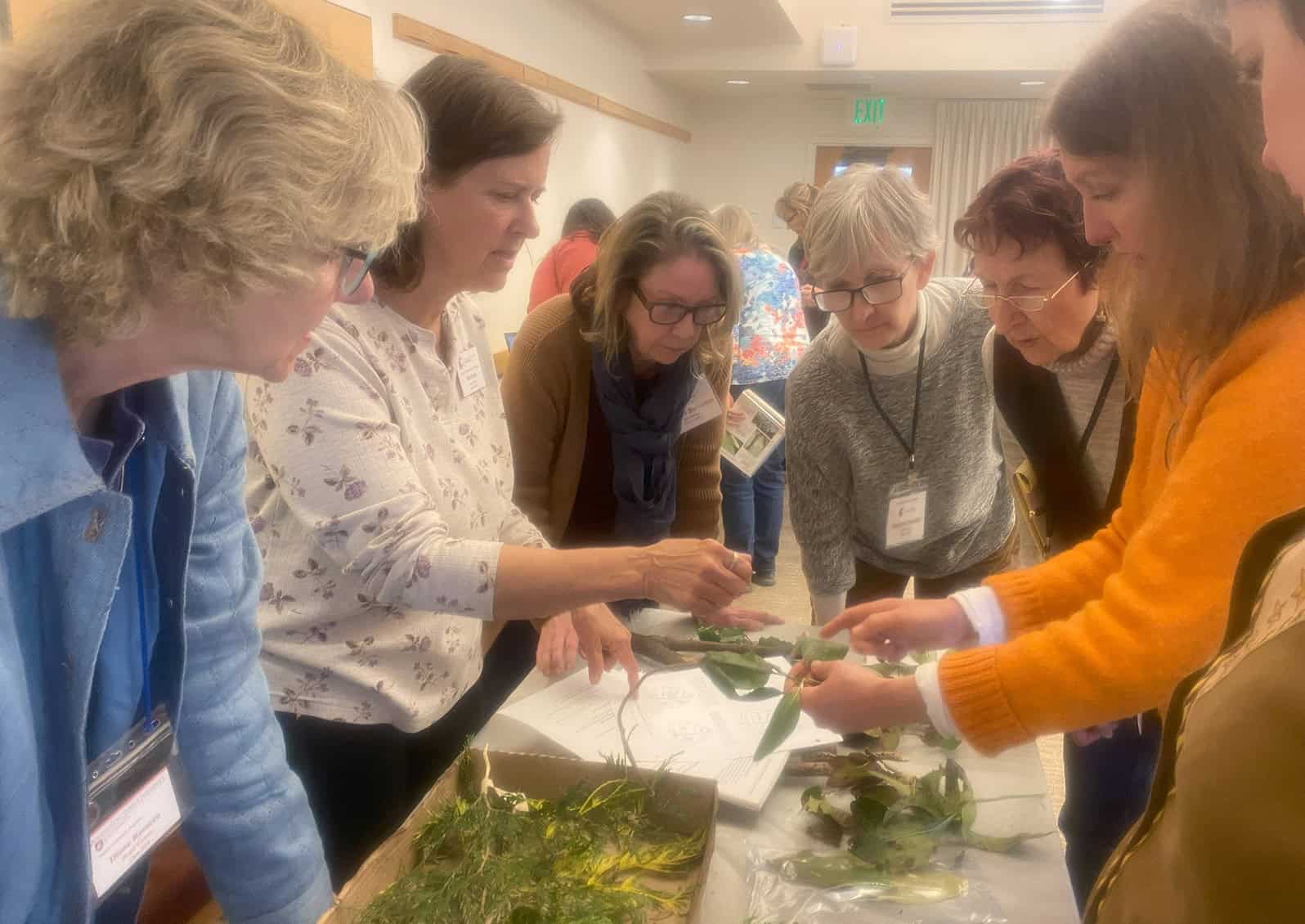
In addition to Washington Green School training, Skagit County Master Gardener interns will receive in-person training on various topics. Photo © Alex DuPont
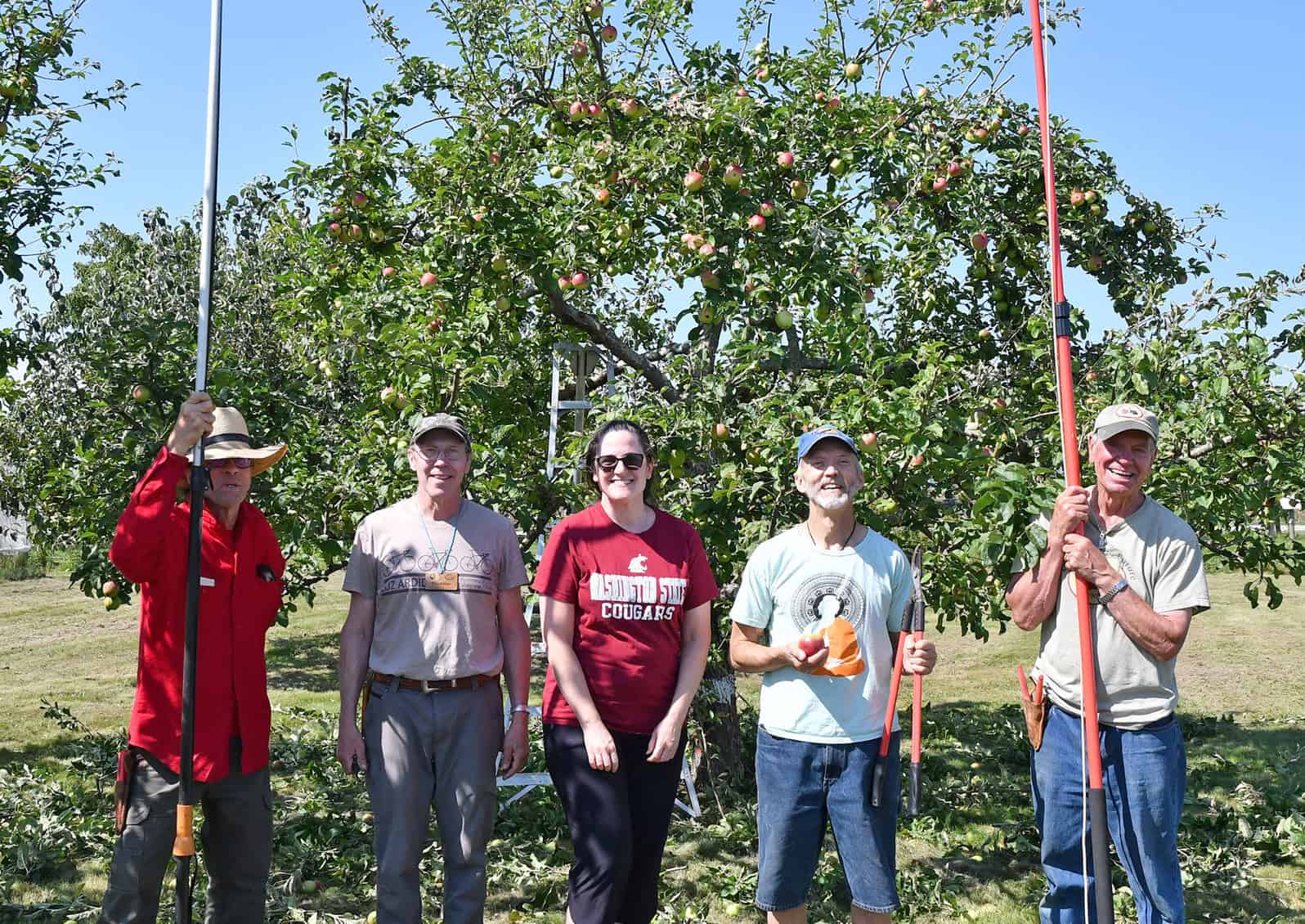
Skagit County Master Gardener training includes hands-on training for topics like pruning. Photo © Scott Terrell
2. Learning with formal classes and hands-on training.
While I genuinely love plants and appreciate a beautiful garden, I did not have any education on the basics and science of plants. That said, for life-long learners the Master Gardener Program as an opportunity to learn science-based details about botany, how to propagate, nurture, grow, and maintain a wide variety of plants for the landscape, and to produce food.
As a former newspaper reporter and editor, I have a constant curiosity. The field of gardening provides an endless supply of questions and answers. It was while working in the newsroom at the Skagit Valley Herald in the 1980s that I became familiar with the program. Legendary Skagit County WSU Extension Master Gardener Joe Dupree would drop by the office each week to bring a hard copy of his “Ask a Master Gardener” column for publication. I can still see the bearded, grinning sprite of a man, always clad in overalls, regaling the news staff with the joys of gardening. These days, I walk through “Joe’s Place,” a memorial space in the Discovery Garden, with fond memories of the man who planted the seed for my future participation.
I enjoyed the formal learning and a return to studying and quizzes afforded by the program. Even more enjoyable is putting that learning to work during the practical “boots on the ground” education in the Discovery Garden with veteran master gardeners who are always willing to answer any question and provide important how-to instruction and advice.
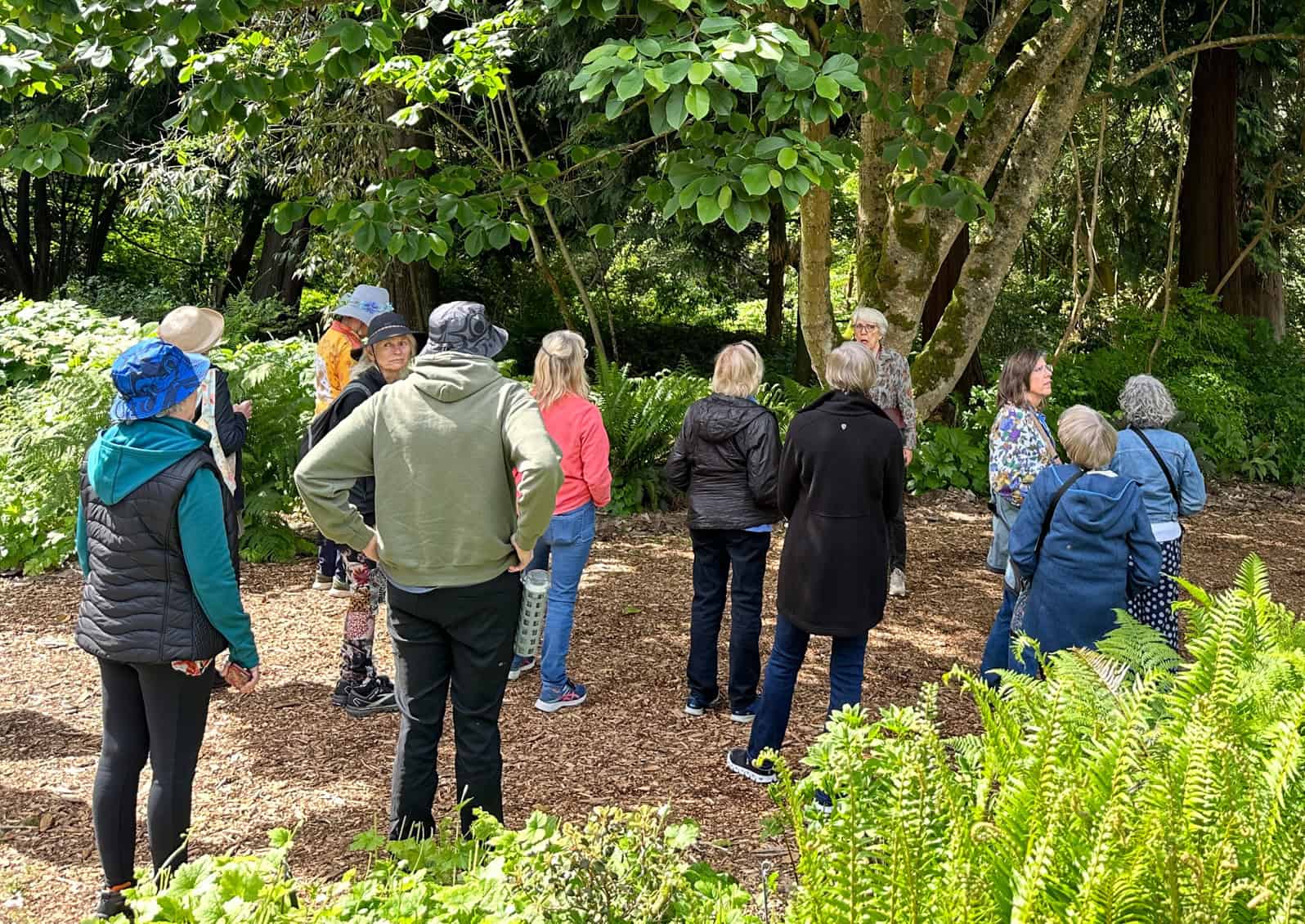
Skagit County Master Gardeners take day-long field trips to botanical gardens.
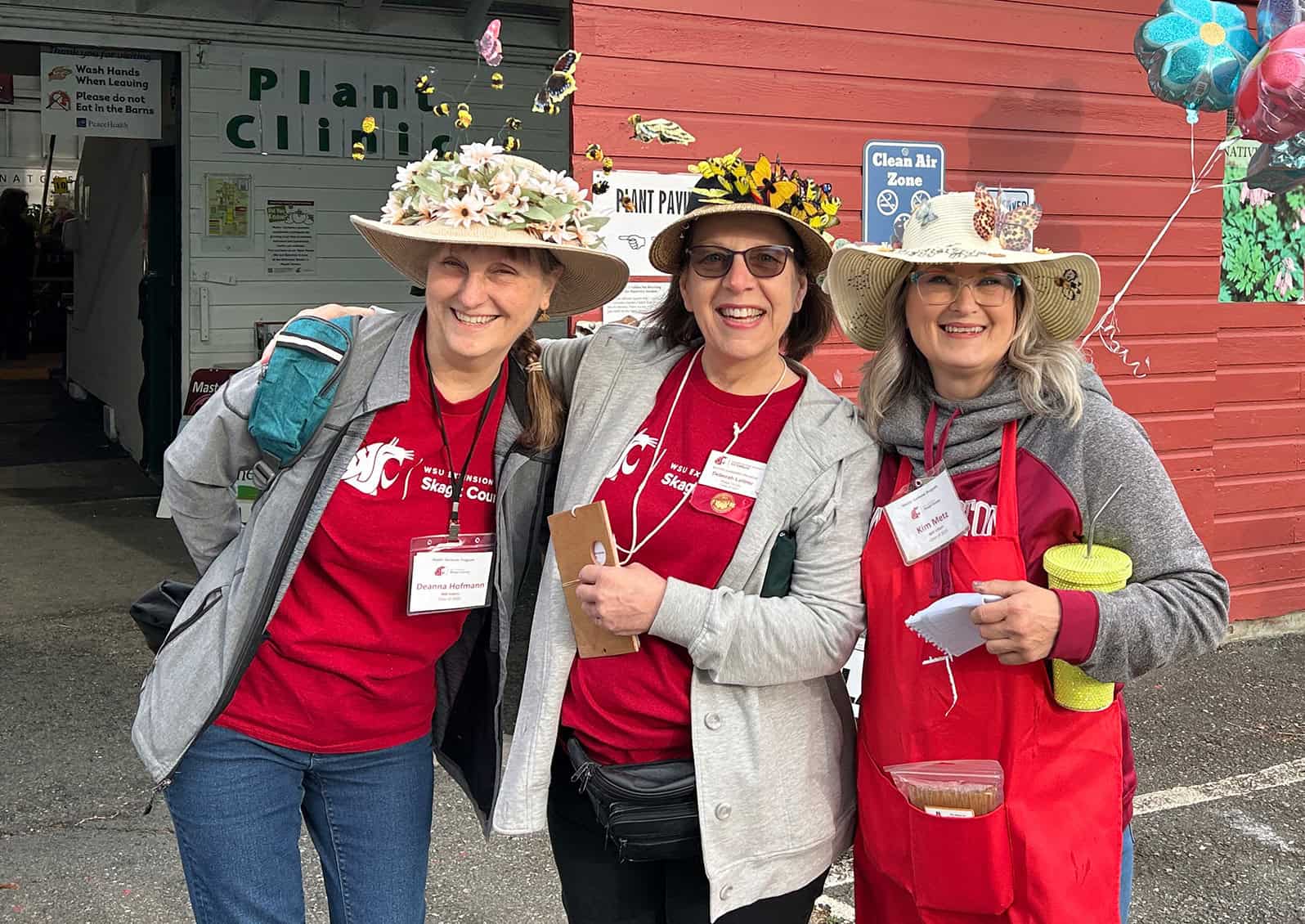
Master gardeners develop life-long friendships started over a shared love of plants. Photo © Skagit County Master Gardeners
3. Benefiting from a science-driven, well-respected program.
All master gardener training and programs are based on science, a tenet that volunteers carry forward as they advise and assist local home gardeners. The program’s longevity, credibility in science and research, and overarching leadership of Washington State University garner respect in the community and across the state.
In 2024, Niche, a college ranking and review website, ranked WSU’s College of Agricultural, Human, and Natural Resource Sciences (CAHNRS) as one of the 15 best agricultural sciences colleges. In an article in the WSU Insider in October 2023 about the ranking, author Angela Sams writes, “Encompassing 13 academic departments and schools, 22 majors, and 27 graduate programs, CAHNRS leads WSU’s land-grant mission of service through education and research,” which affirms the foundation of the Master Gardener Program.
4. Desiring to volunteer and serve the community.
Volunteerism has always been part of my life. My parents were excellent role models and showed me the importance of giving time to serve the community. Over the past 40 years, much of my volunteer work has been in governance, serving on several boards of non-profit organizations in Skagit County. In retirement, I desired to exchange board meetings for work in the dirt of the Discovery Garden, to weed, plant, water, and prune.
The benefits of volunteering are well documented, including in a Mayo Health System article titled “Helping people, changing lives: 3 health benefits of volunteering” by Angela Thoreson, LICSW of the system’s Psychiatry and Psychology department, published in 2023.
“The work that volunteers provide is essential to everyday activities, giving volunteers a sense of purpose, especially when giving their time and talent in the areas they find meaningful,” Thoreson writes, noting that volunteers experience greater increases in life satisfaction and self-esteem.
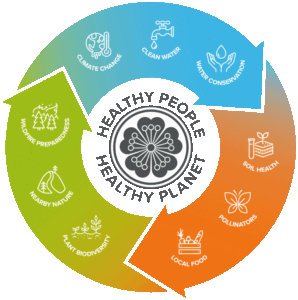
The WSU Master Gardener Program addresses important sociologic and environmental issues by teaching research-based horticulture information.
5. Supporting shared priorities.
Master gardeners have a foundation of nine priorities to provide focus for the program and participants. The list spotlights climate change, clean water, water conservation, soil health, pollinators, local food (growing food to improve individual and community health and wellness), plant biodiversity, nearby nature, and wildlife preparedness.
The training program dives deeply into all nine, and the practices recommended by master gardeners support these important tenets. In training and activities, we tie our projects and advice back to one or more of these priorities. Learn more about the priorities here: https://mastergardener.wsu.edu/priorities/
In my home gardening, I especially enjoyed learning more about the importance of promoting pollinators because of their important role in the ecosystem. Through my training and research, I have added many plants to our home landscape to draw bees, hummingbirds, and butterflies purposefully. While only anecdotal evidence, I noted increasing pollinator numbers in our landscape last summer and have added more pollinator-friendly perennials and annuals again this year, including bee balm, Black-eyed Susan, heuchera, cuphea, coneflower, lilac, sunflowers, zinnias, and more.
6. Protecting the environment and reducing waste.
The science-based curriculum and nine priorities focus on showing respect and responsibility for the environment, reducing waste, understanding our impact on climate change, clean water and water conservation, soil health, and plant biodiversity. Master gardeners are focused on teaching research-based gardening and environmental stewardship practices. https://mastergardener.wsu.edu/
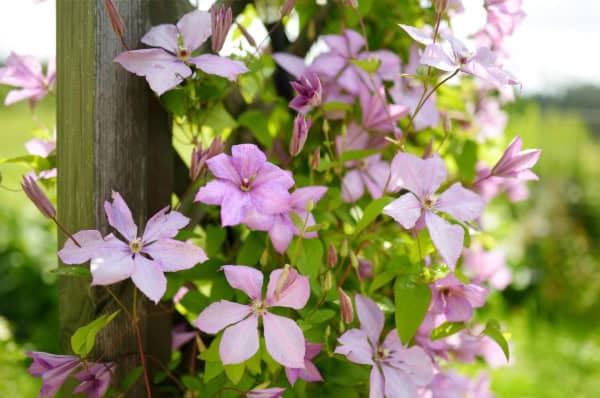
Know & Grow
Vines and Clematis: Grow the Heck Up
Free, no registration required
Tuesday, June 17, 2025
1 pm – 2:30 pm
NWREC Sakuma Auditorium
16650 State Highway 536, Mount Vernon

Mark Your Calendar:
Annual Three Garden Open House
Saturday, June 28, 2025
10 am – 2 pm
Discovery Garden
16602 State Route 536 (Memorial Highway)
Mount Vernon, WA 98273
Fun Activities for Kids ~ Plant Sale
Water Conservation Experts ~ Noxious Weed Information
30+ Garden Rooms ~ Plant Clinic and Gardening Help
Native Plants ~ Pollinators
Talk to Fruit Tree Experts
“WSU’s Master Gardener Program addresses important sociological and environmental issues by teaching research-based horticulture information. We want people to have important skills and abilities that help mitigate challenges and to understand that everyone has a role to play in creating and sustaining healthy and resilient communities,” according to the program website.
7. Meeting like-minded people and making new friends.
As a fellow 2024 classmate wrote: “I felt that I wanted to find a group of like-minded diggers and sowers who see the world as I do, understanding how we are all interconnected and rely on each other to support life on earth.”
Likewise, as soon as I interviewed for a position in the class, I knew I had found a group of comrades with similar interests, goals, and priorities. Research shows the importance of having a strong social circle.
Stanford University authors Tanya Thakur, MBBS and Sharon Brock, Med, write “Researchers have linked volunteering with improved mental health, not only due to the feelings of social connection with the other volunteers, but also due to a boost in self-esteem that results from offering time and energy for the good of others.”
8. Gaining inspiration and embracing creativity.
American abstract painter Elizabeth Murray stated: “Gardening is the art that uses flowers and plants as paint, and the soil and sky as canvas.”
I am inspired by the art of beautiful gardens – both formal and informal – and seek to bring small glimpses of creativity, color, and textures into my home landscape. In addition, there is also a sense of accomplishment. A fellow classmate has found that nothing is better than working in the garden either at home or the Discovery Garden, be it vegetable, native, or ornamental, and then sitting back and admiring your handiwork and hard work.
The Discovery Garden on Memorial Highway west of Mount Vernon is filled with inspiration for the home gardener. With 30 themed “rooms” or gardens, master gardeners and visitors alike learn from experienced master gardeners on the nuances of caring for roses, growing in a greenhouse, how to raise vegetables, designing a Japanese garden, the use of color and texture in the naturescape, or the formality of an herb garden. Each is a piece of art that grows and changes with the seasons.
9. Enjoying the health benefits of gardening.
Research shows that gardening has many benefits for physical and mental health. In an article titled “Does gardening have health benefits?” Pamela J. Bennett, MS, and Josh Winn, MS, of Ohio State University note a wide range of health benefits, including reducing stress, improving activity levels, and supporting a healthy diet with homegrown fresh vegetables and fruits.
The authors write, “Gardening also can boost your mood. Studies show cytokine levels rise, which in turn activates the ‘feel-good’ hormone serotonin when working in the soil. Specific bacteria in the soil also can boost your serotonin levels.”
Another classmate noted, “Maybe it is the endorphins that are released as I play in the soil, or maybe it is the meditative state that I find myself in while gardening,” that contribute to her overall well-being.
10. Having fun!
On any given Tuesday morning, from March through October, the Discovery Garden is a true “beehive of activity” as master gardeners gather to tend the display garden. The scene is punctuated by laughter, smiles, hugs, and teamwork, known as Fun.
A piece aired on NPR sheds light on the value of joy and fun. The story quotes a book titled “The Fun Habit: How the Disciplined Pursuit of Joy and Wonder Can Change Your Life,” by psychologist Mike Rucker in 2023. Rucker’s book “makes the case that pursuit of fun experiences may be even more valuable than seeking the sometimes-abstract goal of happiness,” according to NPR. “Happiness is a state of mind,” Rucker writes. “But fun is something you can do. It doesn’t require education, money, or power. All it requires is intentionality. If happiness is a mirage, fun is your backyard oasis.”
And I love spending time in my backyard oasis, now, more than ever.
REFERENCES AND RESOURCES:
Bennett, P. and Winn, J. (2023) Does gardening have health benefits? The Ohio State University. https://health.osu.edu/health/general-health/health-benefits-of-gardening
Fulton, A. (2023) Here’s why you should make a habit of having more fun. NPR. https://www.npr.org/sections/health-shots/2023/02/04/1150518287/fun-play-happiness-stress-reduction
Janovich, A. (2023) 50 Years, 50 States, WSU’s Master Gardeners program became a national – and global – model. Washington State Magazine. Pullman, WA. Washington State University.
Marquis, J. (2025) Impacting communities: Cultivating plants, people, and communities since 1973. Washington State University Extension Master Gardener Program. https://mastergardener.wsu.edu/priorities/impact/
Sams, A. (2023) CAHNRS lands top 15 ranking for best U.S. agricultural sciences college. College of Agricultural, Human and Natural Resource Sciences, Washington State University. https://news.wsu.edu/news/2023/10/13/wsu-lands-top-15-ranking-for-best-u-s-agricultural-sciences-college/
Thakur, T. and Brock, S. (2024) Volunteering as a Way to Make Friends. Stanford Lifestyle Medicine. https://longevity.stanford.edu/lifestyle/2024/09/30/volunteering-as-a-way-to-make-friends/
Thoreson, A. (2023) Helping people, changing lives: 3 health benefits of volunteering. Mayo Clinic Health System Psychiatry and Psychology Department. https://www.mayoclinichealthsystem.org/hometown-health/speaking-of-health/3-health-benefits-of-volunteering
Washington State University. (2025) Our Priorities Inform Our Efforts. Washington State University Extension Master Gardener Program. https://mastergardener.wsu.edu/priorities/
ABOUT THE AUTHOR:
Kari Ranten is a retired journalist and health care communicator who became a certified Skagit County WSU Extension Master Gardener in 2024.
Questions about home gardening or becoming a master gardener may be directed to Skagit County WSU Extension Office, 11768 Westar Lane, Suite A, Burlington, WA 98233; by phone: 360-428-4270; or via the website: www.skagit.wsu.edu/mg
Washington State University Extension helps people develop leadership skills and use research-based knowledge to improve economic status and quality of life. Cooperating agencies: Washington State University, US Department of Agriculture, and Skagit County. Extension programs and policies are available to all without discrimination. To request disability accommodations contact us at least ten days in advance.